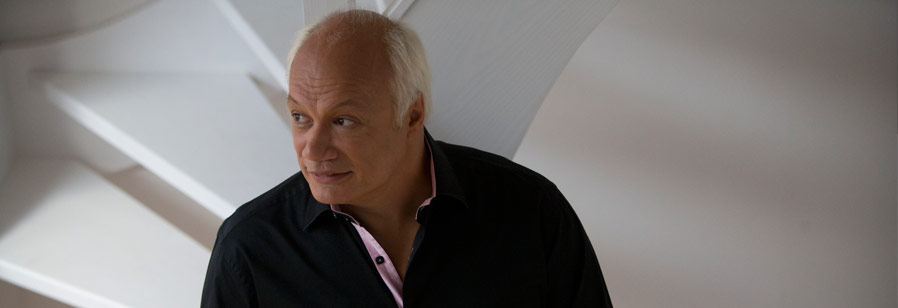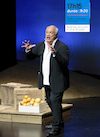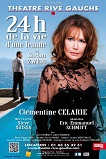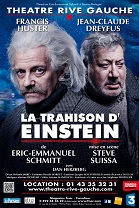Masterclass
Trailers
Monsieur Ibrahim et les Fleurs du Coran
x (x)
x (x)
x (x)
x (x)
x (x)
x (x)
View all trailers
Mr Ibrahim and the Flowers of the Koran – Festival d’Avignon OFF 2016
A performance by Eric-Emmanuel Schmitt of Mr Ibrahim and the Flowers of the Koran at the Théâtre Chêne Noir from 7 to 30 July 2016 as part of the “Festival d’Avignon Off”.
Twenty-Four Hours in the Life of a Woman
Twenty-Four Hours in the Life of a Woman
A respectable woman starts to frequent the casinos. In Monaco, she meets a young man whom she decides to save from the gaming tables. Or so she imagines... Confusion and a morass of emotions follow. How far will her passion take her? A masterpiece in which everyone will recognise themselves.
Never did Zweig reveal with such intensity the stranger that lurks in all of us, waiting for his time to come. A fascinating journey into human complexity.
TRANSLATOR AND ADAPTER’S NOTE
To understand, to understand without judging: that was Stefan Zweig’s obsession. And he clearly achieved his aim, because he continues to be read to this day.
In the hands of any other author, the story of Twenty-Four Hours in the Life of a Womanwould have been an excuse to offer up an edifying lesson on the hazards of desire, but there’s none of that here. Like a dog sniffing out a truffle, Zweig tracks down the source of desire and the path of emotions, unearthing its traps, pitfalls and false trails without ever raising his head to bark, criticise or condemn. He delves into the complexity of our emotions and sticks to them, and he’s never tempted by the dubious concern to simplify.
Young, beautiful, widowed and depressed, the heroine whiles away the tedium of her days in the casino, seeking out other people’s thrills so as not to feel she has died. Suddenly in Monaco, she falls in love with two refined hands, hands that are powerful, expressive, nervous and edgy; the hands of a young man losing at roulette. A whirlwind odyssey ensues: in 24 hours, she becomes a different woman from her former forty-year old self. She surprises herself and she surprises us, with every passing second.
For Zweig, a friend of Sigmund Freud, there is more than the will to understand: there is also the will to recover. But to recover from what? From desire? No: the will to recover from the morbid idea that life without passionate love is possible. Zweig leads people to accept love’s labyrinths rather than running away.
When I adapted this novella for the stage, I kept the idea of a confession that triggers an abrupt shock, but in the theatre, the audience replaces the narrator. I also retained the idea of a totally subjective narrative: the heroine makes the object of her desire talk and invests him with her own fantasies. So, the actor faces an expressive, silent body, the body of a dancer, and she acts his imagined replies until the fateful moment when his real voice is heard - the voice of reality as opposed to the voice of her dreams.
And above all, I tried to bring out Zweig’s redeeming modernity, his struggle against narrow-mindedness, his intense strength, and the courage he sometimes hides under a regressive veil of happy nostalgia.
Éric-Emmanuel Schmitt
Einstein’s Betrayal
On the banks of a lake in New Jersey, two oddballs meet and strike up a friendship. One is Albert Einstein; the other, a vagrant and a drop-out.
To this chance acquaintance, Einstein presents his dilemma. As a militant pacifist, he knows the terrible consequences of his theoretical works and is afraid that Hitler and the Nazis will make the first atomic bomb. Should he renounce his convictions and warn Roosevelt, so that America wins the race to the lethal weapon? How should he react when the FBI starts to suspect him, a German with leftist sympathies and possibly a traitor?
In this intelligent, serious and sometimes funny drama, Eric-Emmanuel Schmitt imagines the moral conflict of a genius, the reluctant inventor of a device for destroying the world.
At The theatre Rive Gauche - Paris, directed by Steve Suissa
With Francis Huster, Jean-Claude Dreyfus and Dan Herzberg



